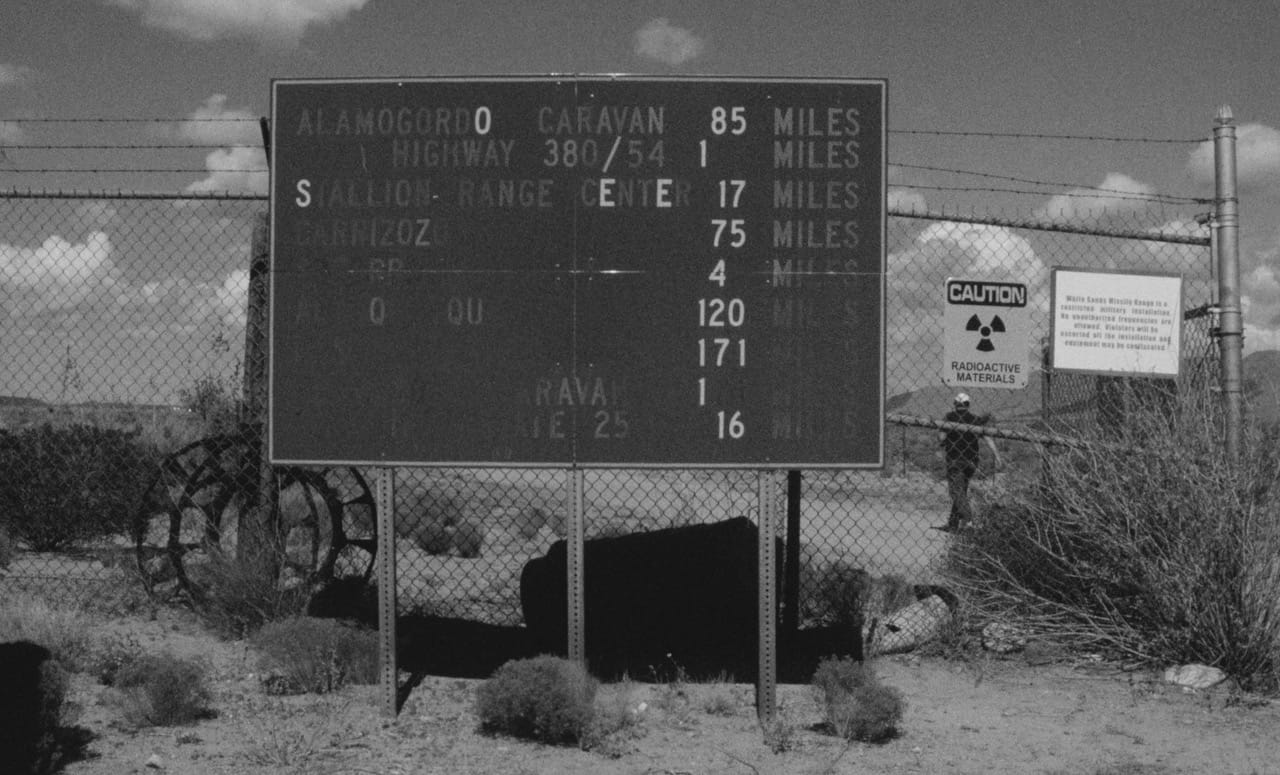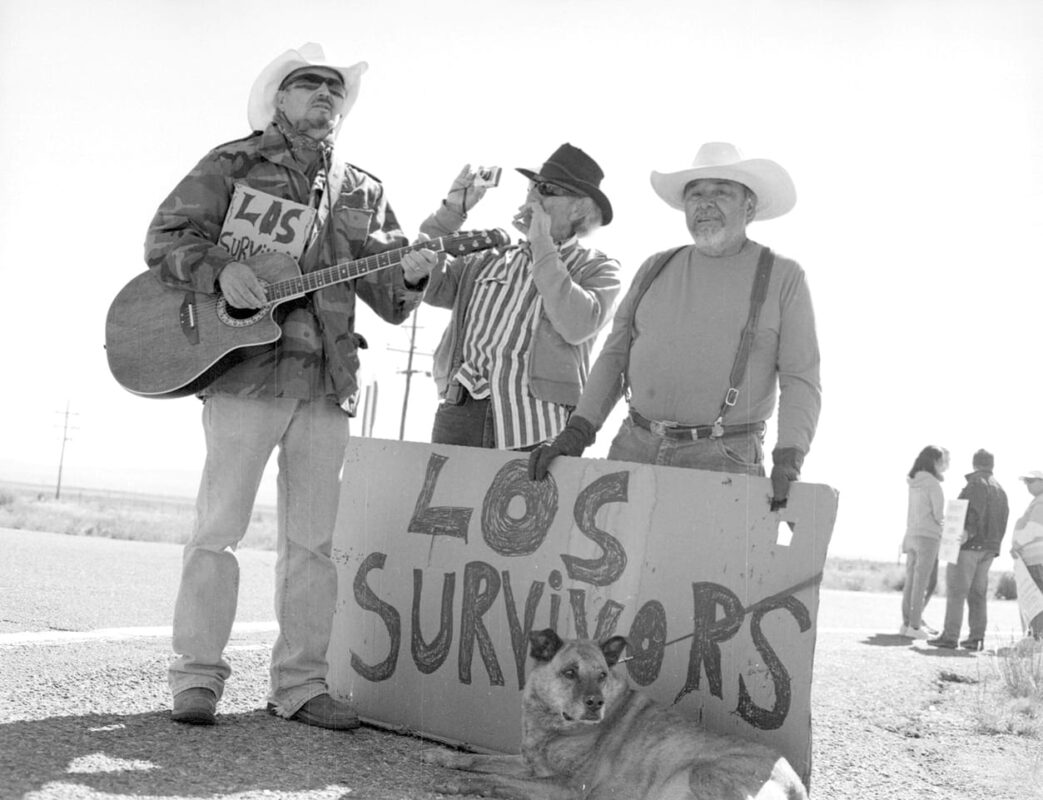Almost every day brings news articles about nuclear weapons. In recent years, the stories were mostly about world pressure on Iran to stop its production of nuclear weapons. Now, the stories are all about North Korea and its firing of missiles towards Japan and its threats to the United States. Part of being conscious in today's society is being aware of the issues that affect all of us.
This past week, I made the acquaintance of Nancy Wolfe, producer of an upcoming documentary titled Off Country. She connected Welum with Taylor Dunne, director, and Eric Stewart, of Off Country, and we talked about how this film project began, where it was going, and what the producers and directors hoped to accomplish in this film about such a timely topic.
Enlarge

Courtesy of Taylor Dunne and Eric Stewart
Dunne explained that she and Eric Stewart started making this film while they were in graduate school in Boulder, Colorado, near Rocky Flats Plant, an industrial facility where plutonium triggers for nuclear weapons were manufactured. "We started researching this project," Dunne explains, "and we found out how Rocky Flats was turned from a superfund site into a wildlife refuge." The idea that people are walking their dogs and jogging on paved paths that are atop land "heavily contaminated with plutonium and other radioactive pollution" led them on the journey that they are on today.
Dunne said that they have been looking broadly at landscapes that have been affected by the nuclear weapons industry, including a community in New Mexico near Los Alamos National Labs; The Trinity Test Site (weapons tested in 1945); and the Waste Isolation Pilot near Carlsbad, New Mexico. The Trinity Test Site had an open house, and the filmmakers went and interviewed community members who live downwind of the Trinity Test Site.
Enlarge

Courtesy of Taylor Dunne and Eric Stewart
"We are inspired by activists like Tina Cordova, who founded The Tularosa Basin Downwinders Consortium...Lots of families who live around the Trinity Site are plagued with cancer and autoimmune disorders, birth defects and sterility," Dunne said. "Forty thousand people lived within 100 miles of the test site."
The filmmakers are still researching and going where their film and research takes them. They see the immediate need for telling people's stories and untold histories. "Radiation is not contained by county, state, or national boundaries," Dunne said. "The impact of nuclear weapons production affects the entire world. When the Trinity Test occurred in north-central New Mexico, the radiation from that test fogged film in the Kodak factory in Rochester, New York, over 2,000 miles away."
Filming in Black and White Was a Conscious Decision
Dunne and Stewart are three years into making this black and white film. "We decided to work with B&W film because we feel the film aesthetic references the landscape photography of Ansel Adams and his iconic photographs of America and The National Parks. This aesthetic is also a critique of the current movement to turn Los Alamos National Labs; The Hanford Site; and Oakridge, Tennessee into National Parks that celebrate the nuclear age; we find this eerie and totally inappropriate. One of our biggest challenges is trying to visualize the slow violence that radiation has played out on the landscape. We feel that using 16 mm film is a way for us to work with this concept aesthetically. We also feel that there is a connection between our B&W footage and the actual footage of the atomic tests. We are not including footage of any of the tests, only long takes of the landscape. We won't be using any nuclear explosions in the film because we do not want to fetishize or spectacularize nuclear weapons."
They are running a Kickstarter campaign to raise the rest of the funding to transfer the second half of the 16 mm film and to edit it, with a goal to finish the film in 2018, get it into festivals, and find a distributor. Two summers ago, they did a nine-country European tour showing footage at micro-cinemas and community centers and having in-person dialogues about nuclear weapons proliferation. Dunne and Stewart plan to continue this journey in communities and universities around the world. They also have a podcast available for free on Soundcloud and iTunes.
